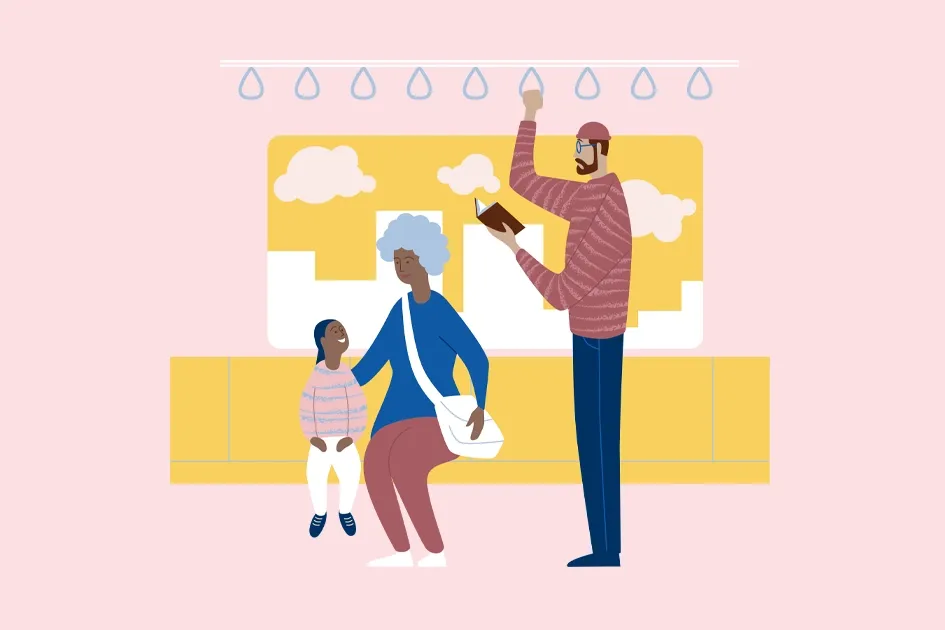Have you ever noticed that some people seem better off than you? Their lives appear peaceful and happy, while yours seems to be filled with stress and problems. It may not seem fair until you stop to consider that you’re seeing only the surface. No one can know what’s really going on in someone else’s life.
 ISTOCK
ISTOCK
Becoming a Christian doesn’t excuse us from difficulty. We’re not promised a life free of hardship and pain, but Christ does promise us peace amid it all (John 16:33). Too often, we think a change of circumstances will lead to contentment. If we had better jobs, more money, or longer vacations, our troubles would be over.
This is the world’s prescription for anxiety, but it offers only temporary relief. Christ’s peace, on the other hand, isn’t dependent upon circumstances, because it’s based on a relationship with Him. In other words, it’s possible to have a calm and tranquil spirit in bad times—even when our world turns upside down.
That’s exactly what Christ’s disciples experienced when He was crucified. All their hopes, dreams, and expectations came crashing down. But the night before all this happened, Jesus gave them these comforting words: “Peace I leave with you; My peace I give to you; not as the world gives do I give to you. Do not let your heart be troubled, nor let it be fearful” (John 14:27). When circumstances were at their worst, He offered them the only thing they needed to make it through—something that could never be destroyed or taken away.
What God promises, He provides.
There’s no guarantee everything will work out the way we want in life, but we can count on this: Christ did everything necessary to ensure that we could live with His unfailing peace in all things.
The first thing Jesus accomplished for us was reconciliation with the Father. Because of sin, every human being is born alienated from God. But Jesus paid the penalty; those who believe in Him are justified—declared not guilty (Rom. 5:1). Instead of being God’s enemies, we become His children.
Second, Christ gives us inner peace. In ourselves, we don’t have this capability, but through our relationship with Him, it can become a reality in our life. Jesus likened our connection with Him to a branch that is attached to a vine (John 15:5). When we were saved, we entered into this vital union with Christ. Now, His life flows through us like sap through a branch.
Because of the Spirit’s empowering presence, we can now have peace and joy in the midst of difficult and trying situations. This doesn’t mean we’ll always be happy, but our confidence and trust in Christ allow us to rejoice in Him and be free of anxiety as we bring all our concerns to Him in prayer with thanksgiving (Phil. 4:4-7). The result is God’s peace that surpasses all comprehension and guards our hearts and minds in Christ Jesus (v. 7).
Third, our vital union with the Lord makes it possible for us to have peace with others. As His Spirit flows through us, He produces in us His fruit of “love, joy, peace, patience, kindness, goodness, faithfulness, gentleness, self-control” (Gal. 5:22-23). These qualities are God’s building blocks for good relationships with others. Even if we’re mistreated, rejected, or reviled, we can still have peaceful hearts.
Why do we lose our peace?
Since Jesus provided all we need, why do we continue to struggle with anxiety and turmoil? We cry out to God in the midst of pain, confusion, or hardship, yet the more we pray about it, the more anxious we become. What hinders us from experiencing the peace Christ wants to give us?
Sin. Inner turmoil always accompanies disobedience to God. If there’s something in our lives that has no business being there (a habit, a relationship, an attitude, a possession, or some practice), we’ll never experience Christ’s peace until we deal with it. Sometimes we try to fix the situation but end up prolonging our misery, because our heavenly Father will discipline us until we finally confess and repent of our sin (Heb. 12:7-10). When our relationship with Him is restored, peace returns.
Focus. The first way I lose my peace is by projecting tomorrow’s cares into today. When my focus shifts from the Lord to my concerns for the next day, week, or month, my problems look bigger and God looks smaller. Jesus said something very similar in the Sermon on the Mount. After telling us to seek first God’s kingdom and trust Him to supply all we need, He asked a revealing question: “Who of you by being worried can add a single hour to his life?” (Matt. 6:27).
Doubt. We can also lose peace if we start to question whether the Lord will do what He’s promised. Perhaps one of our biggest areas of doubt is finances. Jesus told us to trust God and not be anxious about our needs (Matt. 6:25-33), but sometimes we wonder, Will He come through for us? Then our minds begin to race as we contemplate all the “what ifs” and try to figure out our own solution. Instead of focusing on our problem, we should remember who our God is. Isaiah 26:3-4 says, “The steadfast of mind You will keep in perfect peace, because He trusts in You. Trust in the Lord forever, for in God the Lord, we have an everlasting Rock.” When our focus shifts to God’s faithfulness, fretting over the things of this life is much more difficult.
If you’ve thought peace is possible only for those whose lives are untroubled, orderly, and uncomplicated, Christ’s message is good news. No matter how messy life seems, His peace is available to everyone who has faith in Him for salvation, focuses upon Him and His Word instead of circumstances, and follows Him in obedience. It’s that simple: Have faith, focus, and follow.
Adapted from the sermon “Peace in Bad Times” by Charles F. Stanley


